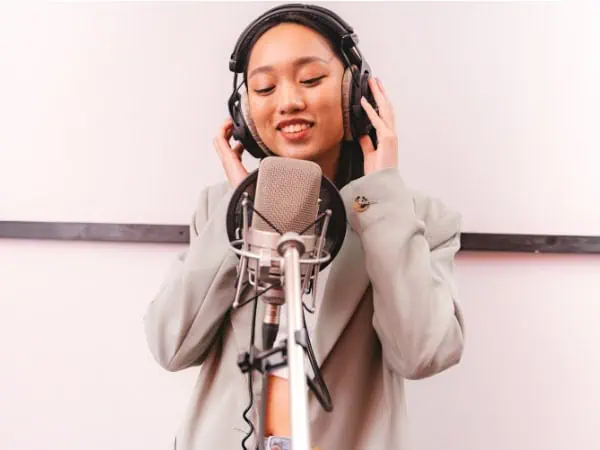Speeding up the hits: how TikTok’s audio trend is changing the music industry?
What do Rihanna, Kanye West, Taylor Swift, and Beyoncé all have in common? Aside from being world-famous music stars, they are also part of a rapidly growing music trend that is taking TikTok by storm: sped-up audios.
This phenomenon has spilled over to other social media platforms, capturing billions of views and changing the way we consume music.
But what drives this trend, and how is it impacting the music industry? Buckle up and get ready for a whirlwind dive into the world of sped-up audios, as we explore their origins, effects on artists and consumers, and potential future implications.
What is a TikTok sped up audio?
A TikTok sped-up audio is a popular trend where users speed up the original version of a song, usually by around three times, making the lyrics less intelligible and the song’s tone more cheerful and catchy.
Sped-up audios are commonly used on TikTok for various creative purposes, such as dance routines and comedic skits.
The hashtag “spedup” has accumulated over 10 billion views on TikTok, which highlights the immense popularity of this trend.

How to create your own sped-up audio?
Although TikTok allows users to manipulate song speed, it doesn’t have a feature to speed up the audio without speeding up the video as well.
A workaround to create sped-up audios without altering the video speed is to use an app called CapCut.
This powerful app allows you to edit audio separately from videos and offers various audio editing options, including the ability to speed up the audio and change its pitch.
Users can then post their sped-up audios on TikTok and use them for their original videos.
The rise and spread of the sped-up audio trend
Initially, smaller accounts edited their favorite songs to add originality to their TikTok content. However, the phenomenon quickly escalated, with sped-up versions starting to rival original versions in popularity even on platforms like YouTube.
Record labels have recognized a profitable opportunity in this trend, leading artists like SZA, Miguel, and Sabrina Carpenter to release official sped-up versions of their songs on streaming platforms.
The impact on artists and the music industry
While some artists embrace this trend as a way to give new life to older tracks or stand out in the crowded music landscape, others express concerns about how it affects their original message and musicality.
For instance, artist Steve Lacy saw his sped-up songs go viral on TikTok but received a poor response during live performances, leading him to express his distaste for the trend.
However, Lacy also decided to release sped-up versions of his songs on Spotify due to the threat of others doing it and profiting from his work.

What does this mean for the future of music?
As with many trends on social media platforms, the future of sped-up audios remains uncertain due to its fleeting nature.
Nevertheless, this phenomenon reflects the fast-paced nature of apps like TikTok and could potentially influence song duration and content consumption habits.
Consequently, artists face the challenge of capturing listeners’ attention within seconds and may continue to experiment with sped-up versions or other innovative ideas to stay relevant in an ever-evolving digital world.
TikTok sped up audio: A double-edged sword?
The sped-up audio trend has undeniably brought a wave of innovation and excitement to the music industry, but it also raises concerns over copyright issues and how it might dilute original voices and musicality.
As content consumption habits continue to evolve, artists and the music industry must weigh the risks and rewards of embracing such trends while maintaining their creative integrity in the face of rapid changes.